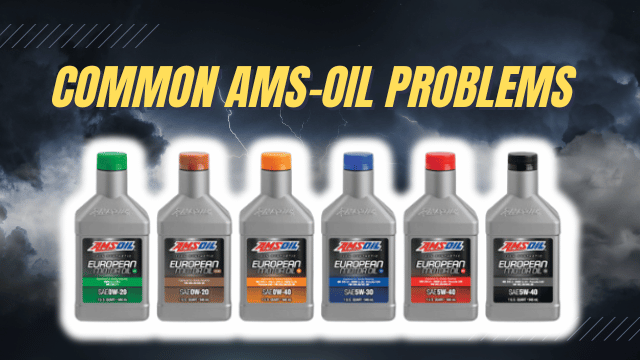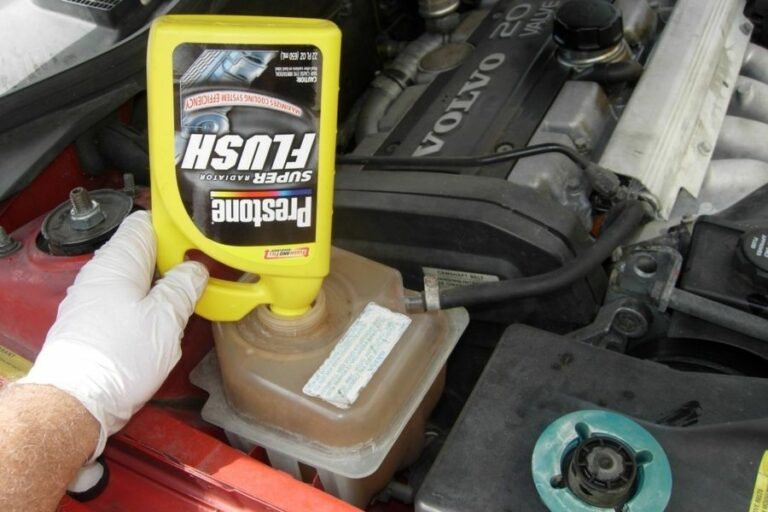What Happens If You Never Change Differential Fluids? [Revealed the Truth]
It neither costs you too much money nor takes hard work to change the differential fluid in your vehicle. But if the differential fluid remains unchanged for a long time, you might bear high repair costs.
And you might never want to reduce the efficiency of your vehicle’s differential.
But why should you badly need to change the differential fluid regularly? Keep on reading this article to the end.
How Does Differential Fluid Work?
A differential’s primary function is to allow each wheel to rotate at its own unique pace by allowing power from the engine to transfer to the wheels.
The differential for any car or SUV is one of the busiest components. Different gears, bearings, and shafts in the differential continuously engage with each other.
As the differential components are continually engaged, they need proper lubrication to allow the components to function correctly by reducing extreme frictions. Here, the differential fluids come into play based on your vehicle’s make and model.
The viscosity of the differential fluid, which absorbs heat produced by friction, enables smooth lubrication and cooling. Usually, The Society of Automotive Engineers (SAE) measures the viscosity rating for different fluids.
The fluid is, in our opinion, bare enough to maintain the differentials. We have observed that synthetic gear oil (FAX-XO) is frequently used in BMWs. In the case of the Jeep Wrangler, the differential fluid 80w-90 or 75w-140 is often used.
Additionally, depending on the type of differential, you typically need to use a specific type of differential fluid. For instance, whether the differential is open or limited slip.
Even though the differential fluid appears dirty and dark, some people don’t seem motivated to change it.
And doing this is not at all a smart move. You cannot expect the differential to work properly for this reason.
Read Also: What is Subaru Front Differential Fluid Type and Capacity?
What Happens if You Never Change Differential Fluid?
Do you have any valid reasons for not changing the differential fluid in your car or SUV? Changing the differential after a specific time won’t cost you too much money.
However, if you choose to act differently, the differential may suffer, and the repair expenses you will have to pay will be quite upsetting.
Here are the consequences if the differential fluid remains unchanged for a long time and why you should change it.
Increased Wear and Tear
Do you know the reasons for increased wear and tear in the differential? This usually happens when the protector, in this case the fluid , becomes contaminated.
You should never allow wear and tear in your car’s differential. Wear and tear in the differential can cause the components, like gears, shafts, and bearings, to malfunction.
And due to this, the differential becomes unable to meet its purpose in the car, meaning it can’t ensure the proper power transfer from the engine to the wheels.
Extreme Overheating
There is nothing to feel surprised about the fact that friction of the differential components can cause overheating. In the case of the differential, there is no exception.
As the gear, bearings, and other components are supposed to engage with each other, this process can create friction.
And for this metal-to-metal contact, the differential fluids are used to minimize the overheating caused by the functions of the differential components.
But when you don’t change the differential, it becomes contaminated, as you know, and can’t cool the heat down. This means the issue of overheating takes place.
To enable the differential fluid to dissipate the heat of the differential, you should change it at regular intervals.
In different forum sites on the internet, we often see how people react to differential overheating caused by contaminated differential fluid, which ultimately impacts a vehicle’s performance.
Read Also: How Much Differential Fluid Change Cost In 2023?
Irritating Noise
When driving cars, there is nothing more frustrating than experiencing noise.
If it has been a while and you haven’t changed the differential fluid yet, be prepared to hear some noise as a result of high friction.
But on the other hand, if you change the differential fluid after a particular time, you don’t need to worry about that.
The differential fluid, which comes with enough viscosity, plays a crucial role in dealing with friction and reduces the noise from the differential.
Do you want to know what the bad differential sounds like? Check this video
Differential Failure
Indeed, if you never change the differential fluid in your car, this is the worst possible scenario. Over time, due to water contamination or dirt and debris, the differential fluid can go bad.
And so, the frictions of the differential components increased on a large scale, causing overheating and spoiling the differential.
To deal with the issue, you need to change the fluid in a regular time interval. Remember, the differential fluid can only play its part when it is in good condition.
But how can someone ever expect the differential fluid to function properly if it becomes contaminated?
Reduces the Efficiency of Vehicles
If you are not careful in changing the differential fluid, you will find a reduction in power efficiency with your vehicle.
This usually happens because, when the differential fluid goes bad, as you’ve already known, the functions of the differential components increase.
And for this, the differential is not supposed to perform well, negatively impacting overall vehicle performance. You’ll find it hard to accelerate your car.
Besides, a decrease in fuel economy is another outcome you might experience due to contaminated differential fluid.
At the same time, you must ensure you put the correct amount of fluid in your Jeep, truck, or car. Let’s say you own a Jeep Wrangler.
In such a case, according to Blue Parts, you need to put 1.5 quarts on the front differential. However, we highly suggest you follow the manufacturer’s guidelines.
Here you can check this video to know why changing the differential fluid is important.
Read Also: Should I Change Transmission Fluid After 100k Miles? Know The Facts And Risks
When Should You Change the Differential Fluid?
First, follow the manufacturer’s guidelines or owner’s manual when changing the differential fluid.
Based on your automobile’s make and model, the differential fluid’s changing period varies. So be a smart cookie!
You shouldn’t stick to a specific timeline to change the differential fluid. If the need arises, you should immediately do so.
After a Particular Period
It doesn’t matter what type of vehicle you own; it is recommended to change the differential fluid every 30,000-60,000 miles you drive your vehicle.
Experts think that after this period, the differential fluid starts losing its productivity to serve the differential.
If you consider the timeline based on the year, it will be 2-3. However, you might need to change the differential fluid if you have to take your SUV or truck through off-roads most often.
Signs of Contamination
Check the condition of the differential fluid regularly. And it will be wise to replace the differential fluid if you find it contaminated.
But how do you know that the differential fluid in your SUV or car is contaminated due to dirt and metal shavings?
Well, in most cases, the color of the differential fluid makes it easy for you to know that it is time to replace the fluid. How? If the fluid looks pretty dark, extreme changes are the fluid becoming contaminated.
Additionally, the smell from the differential can indicate the time for changing the differential oil. In most cases, a burning smell is what you can experience due to contaminated differential fluid.
Therefore in such a case, you should never delay changing the differential fluid to avoid potential damage.
Strange Noise
This is another key indicator that you need to change the differential fluid. In most cases, you can hear whining sounds due to the extreme friction of the gears and bearings.
But not every time the whining sound means you need to change the differential fluid. In such a case, you need to check the condition of the differential fluid.
Check this video as it went viral regarding what happens if you never change the differential fluid.
Read Also: Can You Use Transmission Fluid For Brake Fluid?(Avoid Risk)
How Do You Change the Differential Fluid?
No worries! Changing differential fluid is different from rocket science. You can efficiently perform the task if you know the techniques and have the required tools.
- Step 1: Choose the Right Differential Fluid
You first need to ensure that you choose the proper differential fluid. Because if you select the inappropriate differential fluid, it won’t create enough lubrication and will instead damage your differential.
- Step 2: Raise Your Vehicle
In order to locate the differential underneath your vehicle, you need to raise your vehicle. You must use a jack to lift your car off properly.
Besides, make sure there are jack stands to support the vehicle. You will find the differential in the middle of the axle.
- Step 3: Drain the Existing Fluid.
Before that, place a bucket underneath the differential. The bucket can restore the existing fluid and can prevent the fluid from spreading away. Then, pull out the drain plug from the differential to drain the old fluid.
- Step 4: Clean the Differential
After thoroughly draining the old differential fluid, you need to clean the entire differential.
You need to do so to ensure there is no contaminated fluid left. You can use a cleaning brush, rag, or shop towel to perform the task.
- Step 5: Refill the Differential
Once you are done cleaning the differential properly, the next step is to refill the differential.
But before that, make sure you remove the fill bolt in both of the differentials. To do so, you can use a socket wrench.
Next, you need a hand pump to refill the differential with the correct fluid. You need to make sure you connect the tube of the pump to the seal of the differential.
Don’t rush while pumping the fluid. Additionally, you can also use a plastic funnel to pour the fluid into the differential.
- Step 6: Monitor the Fluid Level
You shouldn’t put excessive fluid on the differential. Instead, you should be careful in order to put the right amount of liquid.
Let’s say you own a BMW; in this case, you shouldn’t put more than 1-1.2 liters of differential fluid. Then again, follow the manufacturer’s recommendation in this regard.
- Step 7: Place the Fill Bolt in the Right Location
So you are now done refilling the differential with the correct fluid. Next, remove the pump’s hose, place the fill, and tighten it carefully. And lastly, you need to take your time to lower the vehicle gently. That’s it.
Read Also: Mercon V Vs Mercon LV Transmission Fluid: What’s the Difference?
Frequently Asked Questions
We did a deep search on the internet and discovered that a good number of people need clarification about changing the differential fluid. Let’s know the answer to some queries.
Can You Change the Differential Fluid on Your Own?
Well, yes. You can change the differential fluid on your own. But you need the right tools and ideas to perform the task. Otherwise, let it be done by a professional with the tools and expertise.
How Long Can You Go Without Changing Differential Fluids?
It depends on the make and model of your car or Jeep. However, you can go approximately 30,000-60,000 miles once you put in new differential fluid. But, if the fluid becomes contaminated too fast, you need to change it immediately.
How Often Should You Change the Differential Fluid?
You need to check the condition of the differential fluid constantly. You need to change the differential fluid based on its conditions. You should replace it if it seems dark or a burning smell comes out.
Does Differential Fluid Affect Steering?
The differential fluid doesn’t directly impact the steering. But as the contaminated or bad differential fluid can negatively impact the whole vehicle’s performance, steering can be affected.
How Much Does It Cost to Change Differential Fluids?
It depends on the type of car or SUV you have. However, it can cost you anything between $150-$300. This includes both fluid and labor costs. The cost becomes less if you perform the task on your own.
Final Thoughts
What happens if you keep the differential fluid the same? You now know what can happen.
So, it will be wise to regularly change your vehicle’s differential fluid. Additionally, make sure you choose the correct fluid when refilling the differential.
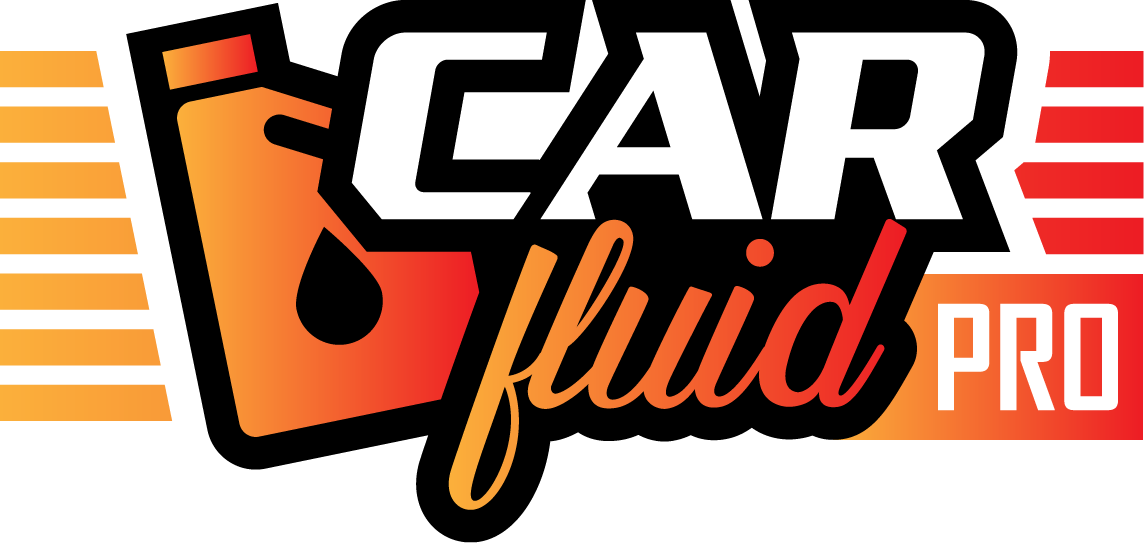
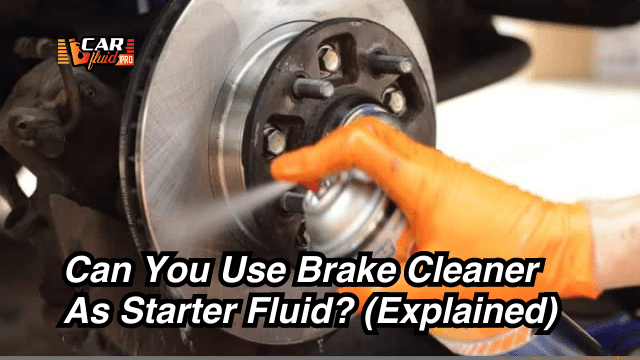
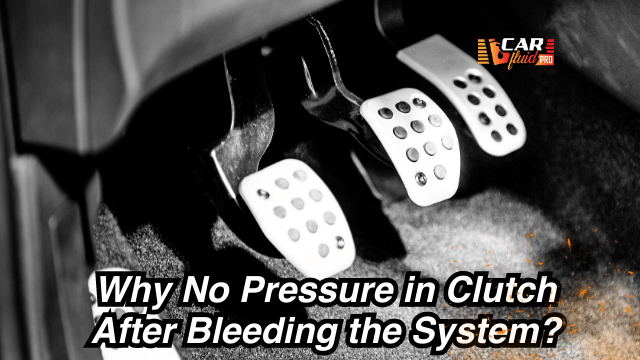
![What Is Dexos Oil: [Explained and Answered]](https://carfluidpro.com/wp-content/uploads/What-Is-Dexos-Oil_-Explained-and-Answered-768x512.jpg)
